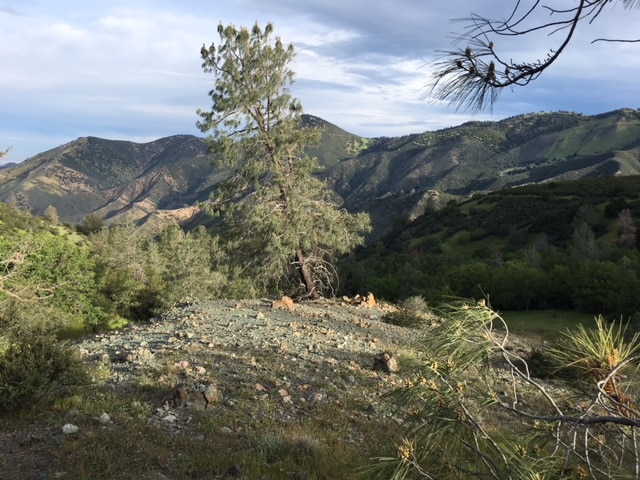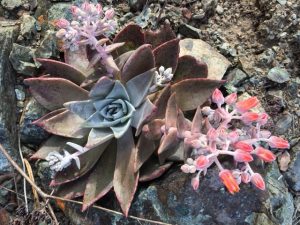Sunday, March 18: The Serpentine Landscape: Rocks, Soils, and Plants
Field Trip with Susie Bartz and Liz Gaspar.
Saturday, March 3, 8:30 a.m. – 3:00 p.m.
Figueroa Mountain Area.
Participation is limited to 20.
Registration begins Wednesday, February 7 at synature@west.net or 805/ 693-5683. Members $10. / Non-members $25. / Children $5. Payment can be made via check or cash on the day of the field trip or in advance of the trip using a credit card online (once advance registration is completed).
Featured photo of serpentine landscape by Liz Gaspar
California’s location on the continental plate has resulted in a unique geologic history and unusual abundance of serpentine formations. These ultramafic rocks of astonishing beauty hold clues about their ancient marine origin. Soils derived from such rocks are typically inhospitable to plants, yet in these soils grows a startling proportion of California’s endemic flora. We will visit sites in the Figueroa Mountain area rich in serpentine rocks and soils to learn about their formation in subduction zones, their metamorphic alteration, and weathering. We’ll also look for corresponding plant species that have evolved remarkable adaptive traits allowing them to grow, and even thrive, in serpentine landscapes. We’ll explore a huge shiny landslide near slopes of spring flora, as well as the Camuesa Fault near the Ranger Peak area, where the serpentine endemic, Leather Oak (Quercus durata) grows. We will visit additional sites as time permits.
Susie Bartz grew up in rural Pennsylvania, and after college and graduate school, she married and came to Santa Barbara in 1974. She pursued a degree in geology from SBCC, and in 2009 she helped complete a project publishing the maps of legendary geologist Tom Dibblee, who was her friend and mentor, and in whose memory she dedicates her walks. As a geology educator, Susie has worked for over 20 years with schools and community organizations to bring an awareness of earth science to the general public in outdoor settings.
Liz Gaspar leads field trips for the Santa Ynez Valley Natural History Society and other organizations. She has a master’s degree from UCSB, and her research topic included native grass species growing in serpentine soils. Liz worked for 20 years at Cachuma Lake as a park naturalist, teaching visiting school children, locals, and campers.











